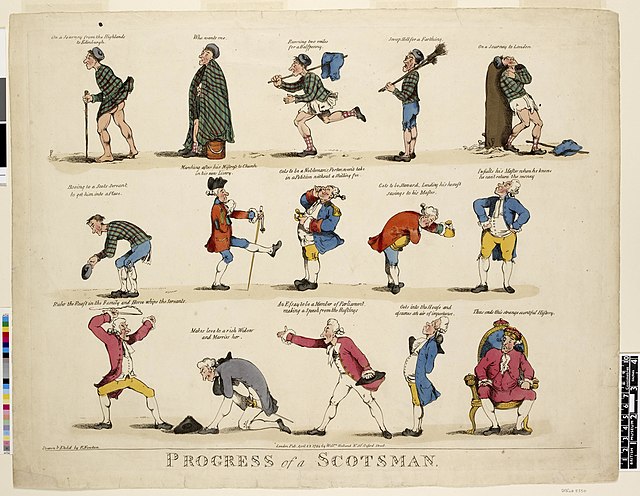The Yellow Kid is an American comic-strip character that appeared from 1895 to 1898 in Joseph Pulitzer's New York World, and later William Randolph Hearst's New York Journal. Created and drawn by Richard F. Outcault in the comic strip Hogan's Alley, it was one of the first Sunday supplement comic strips in an American newspaper, although its graphical layout had already been thoroughly established in political and other, purely-for-entertainment cartoons. Outcault's use of word balloons in The Yellow Kid influenced the basic appearance and use of balloons in subsequent newspaper comic strips and comic books.
The Yellow Kid
Handwritten claim for copyright on "The Yellow Dugan Kid" to the Librarian of Congress on September 7, 1896
Richard F. Outcault's last Hogan's Alley cartoon for Truth magazine, Fourth Ward Brownies, was published on 9 February 1895 and reprinted in the New York World newspaper on 17 February 1895, beginning one of the first comic strips in an American newspaper. The character later known as the Yellow Kid had minor supporting roles in the strip's early panels. This one refers to The Brownies characters popularized in books and magazines by artist Palmer Cox.
A year and a half later, Outcault was drawing the Yellow Kid for Hearst's New York Journal in a full-page color Sunday supplement as McFadden's Row of Flats. In this 15 November 1896 Sunday panel, word balloons have appeared, the action is openly violent and the drawing has become mixed and chaotic.
A comic strip is a sequence of cartoons, arranged in interrelated panels to display brief humor or form a narrative, often serialized, with text in balloons and captions. Traditionally, throughout the 20th and into the 21st century, these have been published in newspapers and magazines, with daily horizontal strips printed in black-and-white in newspapers, while Sunday papers offered longer sequences in special color comics sections. With the advent of the internet, online comic strips began to appear as webcomics.
Richard Newton Progress of a Scotsman 1794 (British Museum)
Thomas Rowlandson after G.M.Woodward. Opinions on the Divorce Bill 1800 (Metropolitan Museum, New York)
Thomas Rowlandson My Wife 1815 (Metropolitan Museum New York)
Illustrated Chips (1896). Harmsworth titles enjoyed a monopoly of comics in the UK until the emergence of DC Thomson comics in the 1930s.








